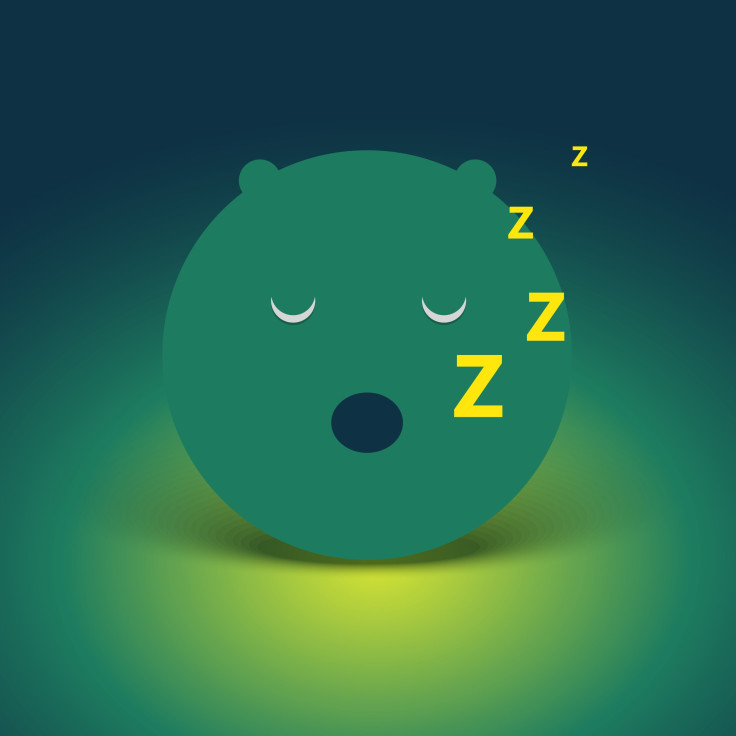How To Sleep Better: A Guide To Making Every Night's Rest A Good One

A “good night’s sleep” is not a fictional concept existing only in fairy tales and movies. We're all fully capable of experiencing it on a daily, or perhaps more appropriate, nightly basis. Here's Medical Daily’s definitive guide to a perfect night’s sleep to help ensure that you awake replenished and your dreams are always sweet.
Temperature
Both room and personal body temperature are important factors in a good night’s sleep, but it’s not as simple as hot and cold.
As reported by Time, a cool head temperature plays a role in helping you to fall asleep. A study presented at the 2011 American Academy of Sleep Medicine’s SLEEP conference found that wearing a bizarre “cooling cap” helped those with insomnia fall asleep easier, Scientific American reported. The cap helped those with insomnia fall asleep faster and stay asleep longer, suggesting that a cool cranial is ideal for sleeping. The researchers involved in the study even suggested that yawning is our body’s natural way of cooling down the head and getting it ready to settle down. Sleeping with one or both feet outside of the covers has a similar cooling effect, New York Magazine’s The Science Of Us reported.
Unfortunately, while cool heads and feet may help you sleep, simply cooling down the room temperature is not the secret to a good night’s sleep. Below the neck, it seems that warmth and comfort are necessary to help keep you in a deep slumber. Researchers at the Netherlands Institute for Neuroscience found that keeping your skin’s temperature “perfectly comfortable” helps you to sleep longer and deeper.
Hack: Try sleeping naked. Not only does this help to regulate body temperature, but also sleeping naked with a partner helps increase the amount of direct skin-to-skin contact. According to The Huffington Post, this is a behavior that promote the release of the sleep-inducing hormone oxytocin.
Put Down The Cell Phone Before Bedtime
Exposure to artificial light from electronics such as smart phones and tablets can make it more difficult to fall asleep and can, over time, disrupt sleep patterns. Our circadian rhythm, or body clock, has evolved to use cues from the environment around us to know when it’s time to fall asleep and time to wake up. For the majority of our time on earth, the sun has been the biggest cue for the beginning and end of day. As a result, humans have evolved to release sleep-inducing and wake-inducing hormones in time with the sun’s rise and set.
Many researchers believe the use of technology before bed has disrupted this normal sleep and wake pattern. Using technology before bed confuses the body and causes it to suppress its release of melatonin, a hormone associated with sleep, making it harder to get a full night's rest.
Hack: Professor Shantha Rajaratnam from Monash University’s School of Psychology and Psychiatry told ABC News that in order to prevent artificial light from impeding your rest, keep away from technology at least an hour before bedtime.
Sleep Position
Dr. Michael Breus, a clinical psychologist and both a diplomat of the American Board of Sleep Medicine and a fellow of the American Academy of Sleep Medicine, tweeted Medical Daily that sleeping on your back is the ideal position for a good night’s rest. There are many benefits to sleeping on one’s back, including keeping your head, neck, and spine aligned and in a neutral position.
This ensures that there is no extra pressure being added to the back and that your spine stayed aligned all night long, which means you won’t be up all night tossing and turning. What's more, sleeping on your back has the added bonus of helping to prevent acid reflux by making it less likely for digested substances to come back up.
Hack: Sleeping on the back is difficult for those who snore or suffer from sleep apnea. For these individuals, sleeping on the side may serve as a better alternative: It can help to prevent back pain all while keeping the oropharynx clear to minimize the risk of snoring and sleep apnea.
Keep A Bedtime
According to the American Sleep Foundation, sticking to a “sleep schedulable” that involves going to bed and waking up at the same time, even on weekends, can help you to fall asleep and stay asleep throughout the night. This is because it helps to train your body’s clock to begin the winding down process at the same time each night, ensuring a more natural and deeper rest.
Along with a regular bedtime, keeping regular bedtime rituals can also help to ensure a deeper rest. These rituals should be done away from unnatural lighting and should not cause excitement or anxiety.
Contrary to common belief, many bedtime rituals such as enjoying a cigarette, alcoholic beverage, or having a large snack right before settling down can actually do more harm than good to your sleeping pattern. The American Sleep Foundation advises that you keep away from all of these before setting down, as they can increase the chances of disrupted sleep.
Hack: Try a hot bath or enjoy a glass of warm milk before bed. Along with helping you to relax, these activities will slightly increase your body temperature, which in turn can also help with the pre-sleep, cool-down process.



























